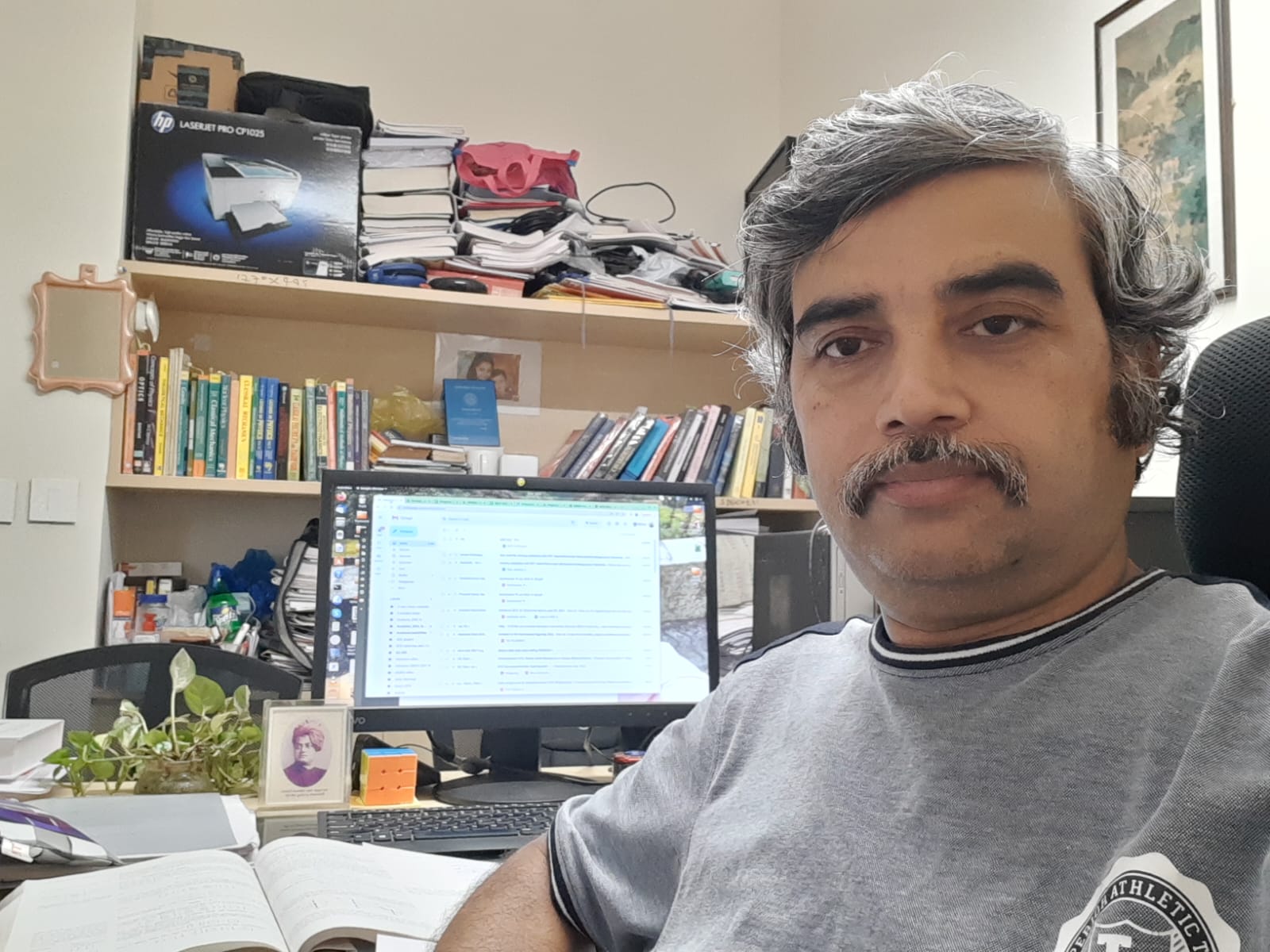This summer internship program will provide a platform to young academic talents scholars and researchers from reputed academic institutions who are pursuing Graduation / Post-Graduation/ Research programs in the disciplines of Science and / Technology which are relevant to BITS Pilani programs to interact with Scientists and Engineers on campus. The program has the following stated objectives:
The Square Kilometre Array (SKA) project is an international effort to build the world’s largest radio telescope, with eventually over a square kilometre (one million square metres) of collecting area. The scale of the SKA represents a huge leap forward in both engineering and research & development towards building and delivering a unique instrument, with the detailed design and preparation now well under way. As one of the largest scientific endeavors in history, the SKA will bring together a wealth of the world’s finest scientists, engineers and policy makers to bring the project to fruition.
In the first phase there will be about 200 dishes in South Africa’s Karoo region, and over 130,000 low frequency antennas in Western Australia’s Murchison Shire, that will monitor the sky in unprecedented detail, in a complementary range of radio frequencies. The two sites are chosen for co-hosting the SKA based on the characteristics of the atmosphere above the sites and their radio quietness, which comes from being some of the most remote yet accessible locations on the Earth. The unprecedented sensitivity of the SKA’s receivers will allow insights into the formation and evolution of the first stars and galaxies after the Big Bang, the role of cosmic magnetism, the nature of gravity, and possibly even life beyond Earth, not to mention serendipitous discoveries that are expected when something so much more sensitive than any existing facility is built. Indian scientists are involved in many of the SKA’s Science Working Groups, and India co-chairs the Solar Physics WG.
Organizations from 14 countries are members of the SKA Organisation – Australia, Canada, China, France, Germany, India, Italy, New Zealand, Spain, South Africa, Sweden, Switzerland, The Netherlands and the United Kingdom.
What are the Objectives of the SKA project?
The SKA will be used to advance humanity’s knowledge. Its primary objectives are
(a) To answer fundamental questions of science of nature, such as
-
- How did the Universe, and the stars and galaxies contained in it, form and evolve?
- What is the nature of ‘dark matter’ and ‘dark energy’
- Is there life somewhere else in the Universe?
(b) The SKA will collect and process vast amounts of data and will stimulate cutting-edge advances in high-performance computing and Big Data science – especially the processing, analysis and visualization of very large data sets.
What is the SKA-India consortium?
To execute activities related to SKA projects in India, a SKA-India consortium has been formed. Under this consortium several Research Institutes, IITs, IISER, NISER, Universities of India come together for exploring, formulating, practicing and promoting activities related to the SKA project and its allied aspects.
Regular member of SKA-India consortium:
BITS-Pilani, K K Birla Goa campus has signed a MoU on 13th July,2016 to become a Regular Member of the SKA-India consortium. Other Regular Members of this consortium includes TIFR, NCRA,RRI, IUCAA, IIA, IISc, SINP,PRL, IIT Kanpur, IISER, NISER, Delhi University, JMU, MGU, Presidency college, Kolkata etc to name a few.
Executive Council of SKA-India consortium:
The consortium has an Executive Council for executing and managing various activities of the Consortium. BITS Pilani, K K Birla Goa campus has nominated Dr. PRASANTA KUMAR DAS, a faculty in the Department of Physics as the member of the Executive Council of the SKA-India consortium.
To track on the progress in SKA telescope project work browse the site maintained by SKA-India(click)
SKA-India Student Training Program:
The Square Kilometre Array (SKA) stands as the world’s largest radio observatory, poised to unlock the mysteries of the universe. India is actively participating in its construction as a full member country. This will open many opportunities for science and technique development within the Indian scientific and industry community. However, to fully support SKA endeavors within India, it is important to nurture a robust pool of human resources. The SKA India Consortium (SKAIC) has taken the lead in spearheading the formation of diverse science working groups. The rationale behind this human resource development initiative is to foster awareness of SKA activities among students at every educational level, spanning from schools to undergraduate and postgraduate programs. By this awareness early on, we aim to inspire and prepare the next generation of students. These individuals will eventually form a skilled workforce capable of contributing across all facets of SKA activities within India. Institutes who have shown their interests in Phase 1 to conduct SKA student training program are IIT Kanpur, IIT Indore, BITS Pilani Goa campus, Manipal Academy of Higher Education, IUCAA Pune and IIST. More update on the SKA training program will follow soon. Stay tuned to us.
Vigyan Samagam 2019
In order to highlight the value and impact of fundamental research to a broad cross-section of audience including students, academicians and industry, and to further strengthen India's participation in mega-science projects, Department of Atomic Energy (DAE), Department of Science and Technology (DST) and National Council of Science Museums (NCSM) are jointly organising a multi-venue mega-science exhibition, Vigyan Samagam 2019. Six major International/National projects (1) European Organisation for Nuclear Research (TMT) take part in this mega-science exhibition, Vigyan Samagam. LIGO),(6) Square Kilometer Array (SKA) and (7)Thirty Meter Telescope (CERN),(2) Facility for Antiproton and Ion Research (FAIR), (3) India-based Neutrino Observatory (INO), (4)International Thermonuclear Experimental Reactor (ITER) (5) Laser Interferometer Gravitational-Wave Observatory. A first-of-its-kind, Vigyan Samagam shall be hosted in a caravan mode at four major Indian cities as per the following schedule:
Mumbai - 8th May to 7th July, 2019, Bengaluru: 29th July to 28th September, 2019, Kolkata: 4th November to 31st December, 2019, Delhi: 21st January to 20th March, 2020
More details are available here: https://vigyansamagam.in/


 An Institute of Eminence
An Institute of Eminence







